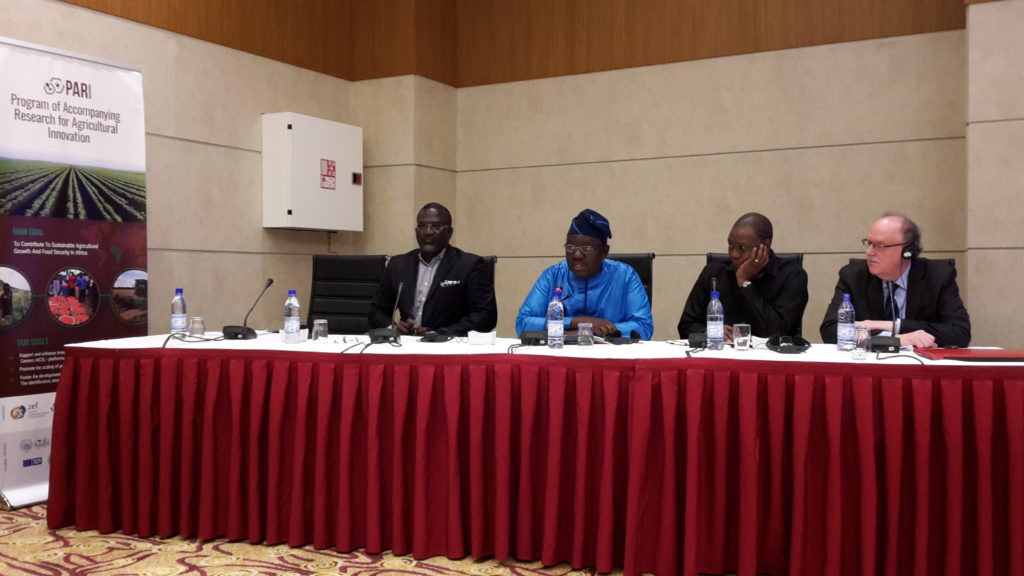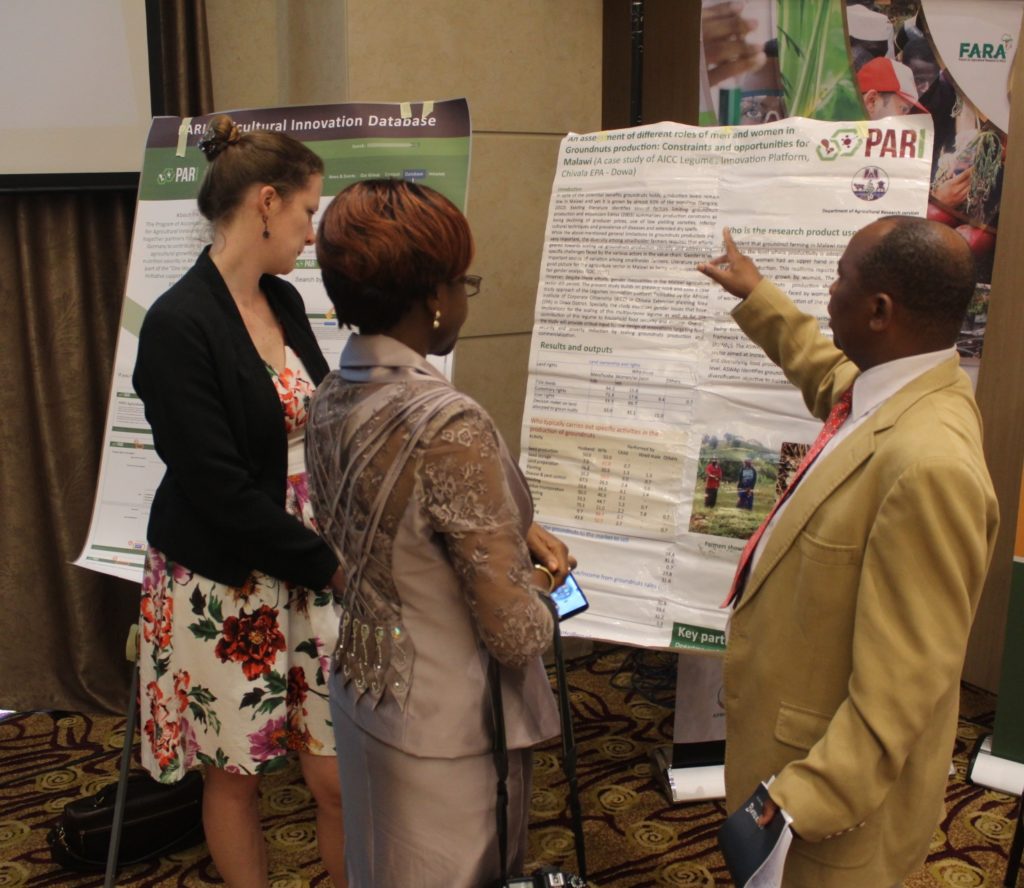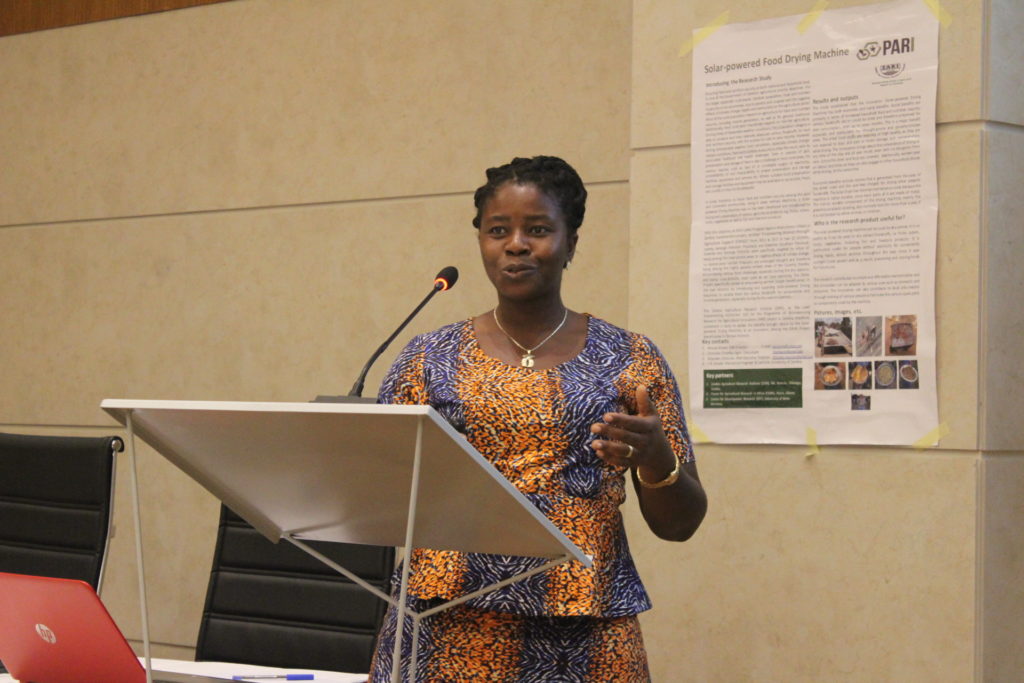Research teams from 12 African partner contries, India & Germany met in Contonou, Benin for the Annual Research and Planning meeting of the Program of Accompanying Research for Agricultural Innovation (PARI) on 8-9 February, 2018.

The meeting was hosted by the Institut National des Recherches Agricole du Bénin (INRAB) and brought together PARI institutional partners, i.e. Forum for Agricultural Research in Africa (FARA), African Growth and Development Policy Modeling Consortium (AGRODEP), International Food Policy Research Institute (IFPRI, Africa Office), Centre for Development Research (ZEF, University of Bonn), University of Hohenheim, Technical University Munich (TUM), partners from the 12 African countries, as well as other leading stakeholders of agricultural development from Benin’s government, farmers groups, and international institutions, i.e. the World Bank (WB) and the African Development Bank (AfDB).
The objective of the meeting was to review the progress of the first phase of PARI (2015-2017) and to jointly develop the framework for the research activities, mission and future goals of the second phase which will extend for the next two years (2018-2019).
Participants highlighted a number of priority areas for research and policy actions: innovations for agriculture, and especially, the need to integrate both farmer-led and research-led innovations; investment and private sector engagement in agricultural and, more broadly, rural development; focus on later stages of the agricultural value chain, with particular emphasis on employment creation.
Research clusters for PARI 2.0:
- Targeting investments in innovations and framework conditions
- Mechanization and skill development for productivity growth, employment and value addition
- Digitalization in agriculture, food and nutrition
- Enhancing opportunities for the youth in the rural economy
Preceeding the annual meeting was a one-day policy workshop where PARI researchers presented their findings related to the agricultural context in Benin to key national policy stakeholders.



